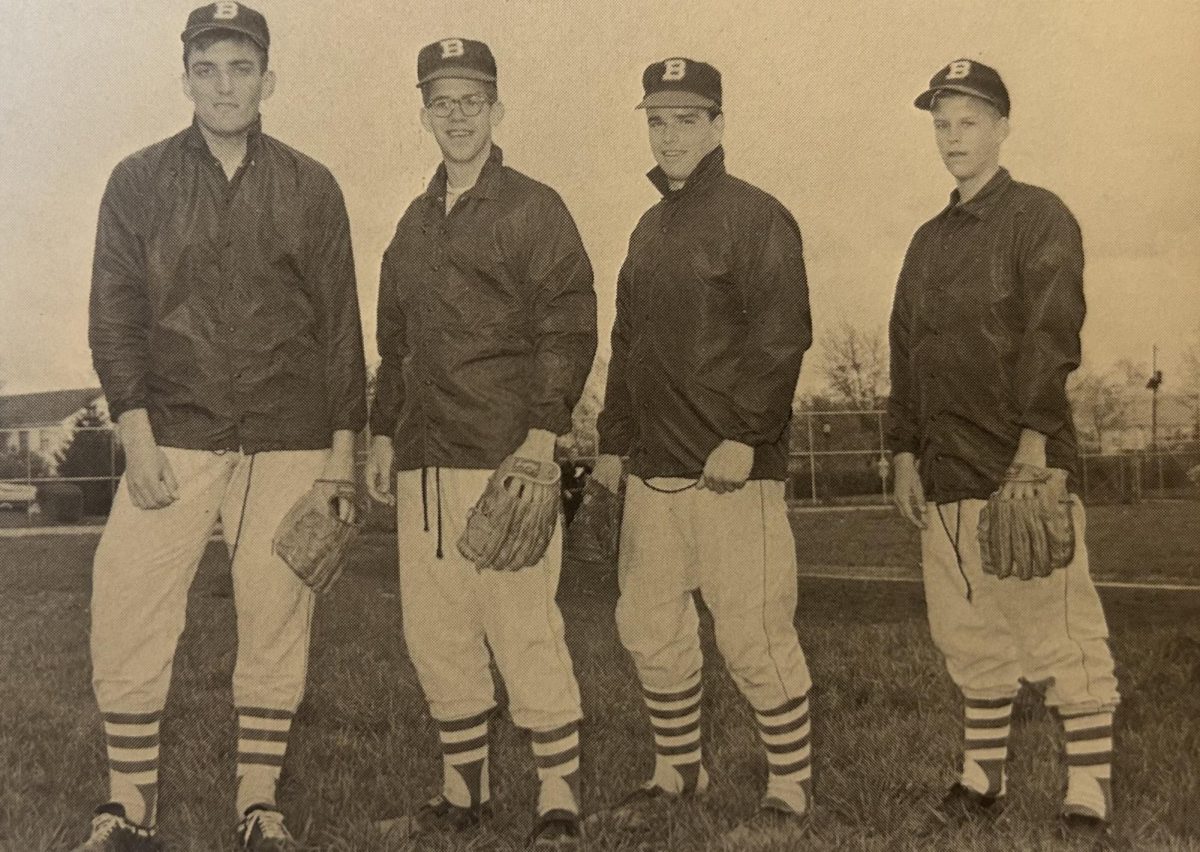Read more about cheating in Bexley here and here.
*Names have been changed
As pressure rises and having good grades in school feels like the only path to future success, students may find themselves in a difficult situation that can lead to cheating.
High school student Garland Weber* was caught using his phone to look up answers on a science test last year. Weber explained that he was not learning effectively from the teaching style of the class and felt he was unprepared for the test, which caused him to cheat.
“I wanted to get a good grade on my [science] test because it was a hard class, and my grade could not afford failing this test,” Weber said.
Math teacher Melissa McCreary explained students may feel the need to do well in the class rather than learn the material, causing them to cheat instead of study. McCreary added being caught cheating can hurt the relationship between teachers and students.
“You can always retake a test, but once your character is in question, it is tough to recover that,” McCreary explained.
This fear, however, has not stopped high school student Gordon Greenhill* from cheating on many tests.
Cheating has only positively impacted her grades over the years, and since she has never been caught, she’s continued to do it, she said.
“Cheating is so easy and has become so normalized over the years,” Greenhill said. “Everyone I know has cheated before.”
She said many teachers are on their phones or not paying attention while students are taking a test, giving them frequent opportunities to cheat. During math class, Greenhill would take advantage of this by writing on her hand and whispering to other students, she explained.
“I used to work through math tests with the people sitting next to me, pretty loudly, and the teacher never said anything to us,” Greenhill added.
Math teacher Keary Ryan said teachers are much more aware of what is going on than students think. From years of teaching, teachers have encountered the different ways students can cheat and are more aware of what they should be looking for during assessments, he explained.
Ryan said he once caught a student cheating on a semester exam. He noticed the grade seemed too high given that this wasn’t the student’s best semester, he said.
“I looked at where the questions were, where he should have shown the work, and there was hardly any work,” Ryan said.
The student admitted that he had cheated after a conversation with Ryan and he was reported to the school, Ryan said. He explained that the college this student was attending found out, but he is unaware of what kind of actions were taken by the college.
Ryan and McCreary said they believe it is important for students to take accountability if they are caught cheating.
“When someone looks you in the eye and lies about it, it makes it really tough to continue building rapport throughout the year,” McCreary said.
This is also true when it comes to admitting his actions to his parents, Weber said.
Weber texted his parents immediately telling them what had happened and warning them that they would be getting a call from the school.
“They were very disappointed, but they appreciated being told by me instead of finding out from the school,” Weber said.
Weber also admitted to cheating and accepted the consequences when talking with administrators and teachers, which resulted in a lighter punishment from the school. However, these less extreme consequences have caused Weber to continue cheating over the years, he explained.
High school student Jane Rossi* said she was in a similar situation but did not tell her parents. Rossi was caught cheating on a social studies test, and her parents found out the next day from a call from the school, she said.
“I was out with friends and my parents texted me to come home right away,” Rossi said. “They were extremely disappointed that I cheated but more upset that they didn’t hear it from me first.”
Greenhill explained she has been worried that she will be caught in the past, but that has not stopped her from cheating continuously.
“Yes, you are a better person if you don’t cheat, but in the end it doesn’t really matter since it doesn’t really affect you if you are caught,” she said.
Easier access to technology, such as school Chromebooks and phones, has increased throughout the years, giving students more options when it comes to cheating, Greenhill explained. With many different testing accommodations available to students, they may have more opportunities to cheat on tests, she said.
“For me, I have always had extra time and that has made it easier for me to cheat,” she added.
Greenhill explained that taking an assessment in a separate room with no teacher present enables students to look answers up on their phones during the test.
McCreary said she has also had an issue with the use of technology during tests. She explained she caught a student trying to use their calculator during a non-calculator test.
“A student in the middle of the room put her calculator on the floor under her desk, slipped her shoe off and was trying to type with her toes,” she explained.
Ryan said he understands the desperation that can lead to cheating, but he doesn’t think the possible benefits outweigh the consequences.
“It is a quick fix, but in the long run it’s not going to help you,” he added.
Rossi explained she was caught during her sport season. Her coach didn’t bench her, but her parents did, she said.
Rossi said her parents knew how important the sport was to her, so they felt the best consequence would be taking it away and benching Rossi for three games.
“Sitting on the bench during games definitely made me regret what I had done,” she said. “I have learned to manage my time better so I am always able to study for tests.”
















